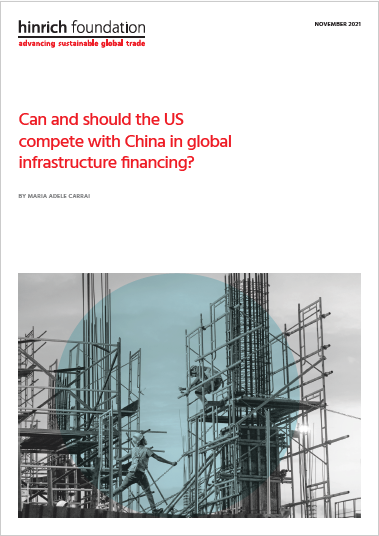US-China trade
Can and should the US compete with China in infrastructure diplomacy?
Published 23 November 2021
Launched at the 2021 G7 Summit, the US-led Build Back Better World initiative should refrain from concentrating its resources into a difficult mission of competing with China’s Belt and Road infrastructure investments. Rather, Washington should cooperate with Beijing where it can, continue to promote better international standards, and contend in sectors where it enjoys competitive advantages.
Neglected for decades by developed countries and international development institutions, infrastructure has garnered renewed attention. With the global infrastructure gap estimated to exceed US$40 trillion, the need for more infrastructure is overwhelming.
China’s Belt and Road Initiative (BRI), inescapable due to its size and ambition, is also renewing attention on infrastructure projects. China’s promise to spend trillions of dollars in infrastructure through the initiative, ostensibly to strengthen global trade routes, has raised much concern in many countries and triggered the ideation of equally ambitious plans for infrastructure development.
Chief among the competitors is the United States. At the 2021 G7 Summit, the US launched the Build Back Better World initiative, or B3W. Established to build infrastructure, B3W is also expected to set new standards that better reflect the values of Western democracies, and balance against the BRI and China’s global reach. The questions many are asking: Will the initiative be successful? Can or should the US compete with China in infrastructure diplomacy? Can the B3W and the BRI collaborate?
In this essay, Maria Adele Carrai of New York University Shanghai compares China’s BRI and the US-led B3W, focusing on the differences between the two approaches and the limitations of B3W to compete with the BRI. Carrai argues that the need is urgent for the US and China to better coordinate international infrastructure investments, effectively allocate resources, and avoid duplicates or overlapping of initiatives. Most importantly, they must consider the real needs of the developing world rather than simply fall prey to geopolitics and strategic considerations.
© The Hinrich Foundation. See our website Terms and conditions for our copyright and reprint policy. All statements of fact and the views, conclusions and recommendations expressed in this publication are the sole responsibility of the author(s).






